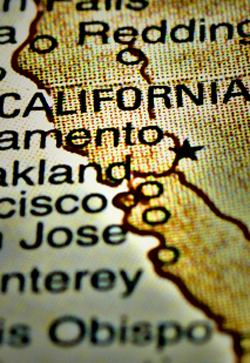Three decades ago, during the long national debate that finally produced the ill-fated Immigration Reform and Control Act of 1986, there was broad agreement that uncontrolled illegal immigration was undermining public support for all immigration. Prominent voices warned of danger to an implicit social contract that maintained that public support in return for effective control through the rule of law.
In a 1983 editorial headlined "Time to Turn the Illegal Tide", The New York Times said that while the country needed immigration, "What it does not need is such an uncontrollable flood of illegal migrants that it tries public patience and foments a backlash against all newcomers."

The Rev. Theodore Hesburgh, who directed a federal commission on immigration policy, said it was necessary to close the "back door" of illegal immigration in order to preserve public support for keeping open the "front door" of legal immigration.
On the floor of the House of Representatives, Peter Rodino (D-N.J.), said this just before a crucial vote in October 1986:
I am fearful that unless action is taken to address the undocumented alien problem, the American people will forget their immigrant heritage and restrictionist pressures will grow. Illegal immigration is not a problem that will simply go away. If we do not address it now, if we simply put our heads in the sand, we will allow a pressing problem to become an overwhelming program.
IRCA, of course, failed to deliver the promised control. The border remained porous. Congress stuck its head back into the sand as efforts to check illegal immigration at the worksite were overwhelmed by counterfeit documents that allowed illegal immigrants to pretend to be legal.
The resulting public frustration took its most dramatic form in California, with passage in 1994 of Proposition 187 to deny certain public services to illegal immigrants.
Then Proposition 187 was thrown out by a federal judge. Illegal immigration grew rapidly in California and many other states. Now Californians' frustration in California is being met by an opposing force, as the state legislature approves a series of measures to regularize illegal immigration.
The warnings of three decades ago stand in remarkable contrast to what is happening in California. Univision reporter Luis Megid assessed the situation in a story on Monday's Spanish-language evening news.
Megid noted one legislative measure — if signed by Gov. Jerry Brown — would allow an "indocumentado" (an "undocumented one") to obtain a law license. According to another, he said, "More than two million indocumentados would soon obtain their driver's license."
Megid asked: "To what can this good will toward the immigrants be attributed?" As is common on Univision, he used immigrants as interchangeable with indocumentados. Then he said: "Those who have worked for years in this issue say it didn't just happen gratuitously. It is a political response to the millions of immigrants — legal and undocumented — who live in California today."
Activist Ricardo Calderon underlined that point with the observation that: "A large portion of the undocumented people have relatives or friends who are voters and can turn the balance in favor of a given candidate through their vote."
Now the growth of illegal immigration in California is straining another social contract there. Los Angeles County Supervisor Michael Antonovich has been in the news lately, expressing alarm about the hundreds of millions of dollars that are paid out every year to about 100,000 children of illegal-immigrant parents. According to Antonovich, the monthly total amounts to $54 million, including $20 million in CalWorks benefits (the state's version of TANF) and $34 million in food stamps.
All this is coming against a background of rising public concern about the social and fiscal costs of widening income inequality and the slowing of the upward mobility that is the central principle of the American dream.
Such circumstances bring political tensions. President Obama recently expressed concern that our politics are trending toward "a zero-sum game where a few do very well while struggling families of every race fight over a shrinking economic pie."
Meanwhile, an essay in The Economist sees the rising inequality and slowing social mobility as a serious danger. It appears under the headline "The American Dream, RIP?"
The Economist asks: "What if the bottom 85 percent today are mostly doomed to stay there? In a country founded on hope, that would require something like a new social contract."
Social contracts, we are learning, do not do well in a country where the middle class is shrinking and becoming cynical about government, while the working poor are growing and becoming more dependent on government handouts.
